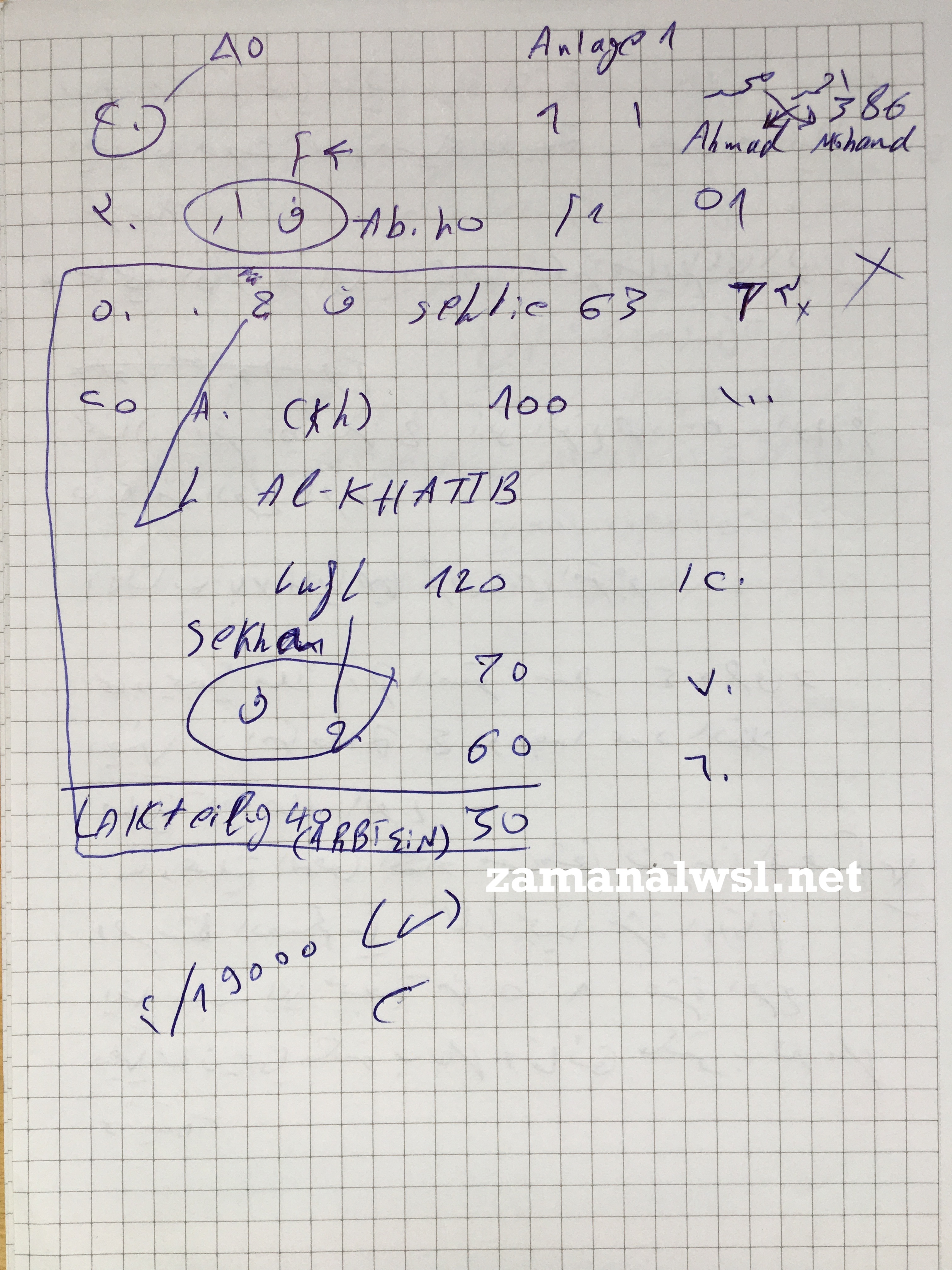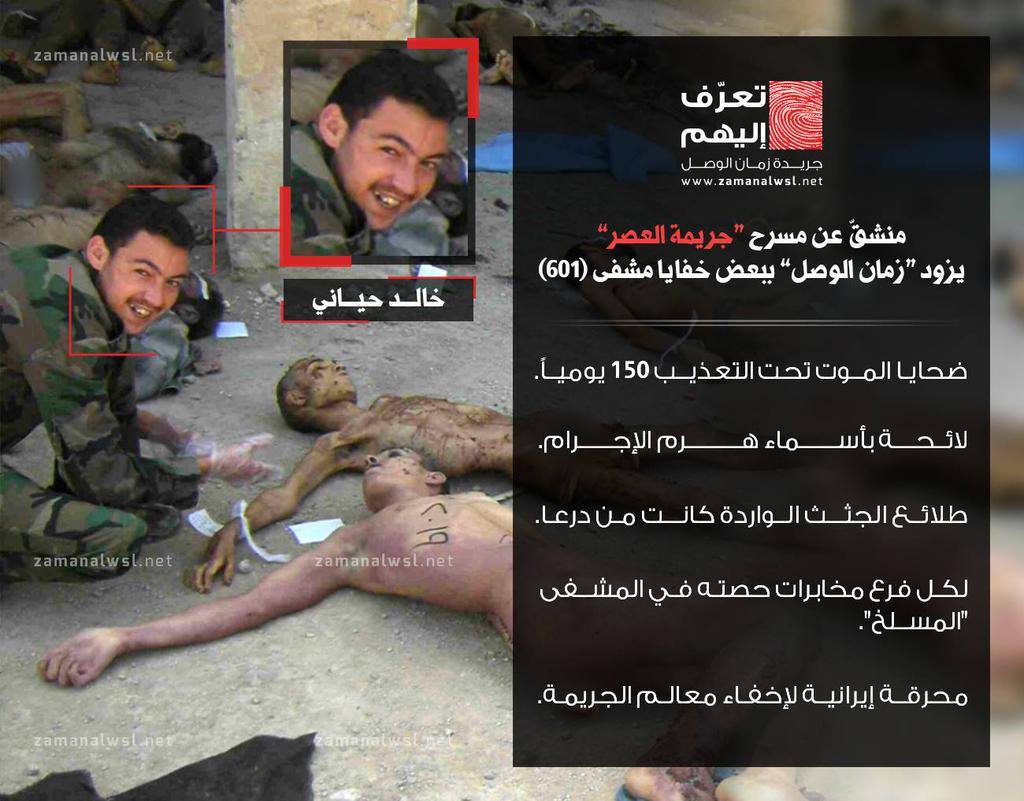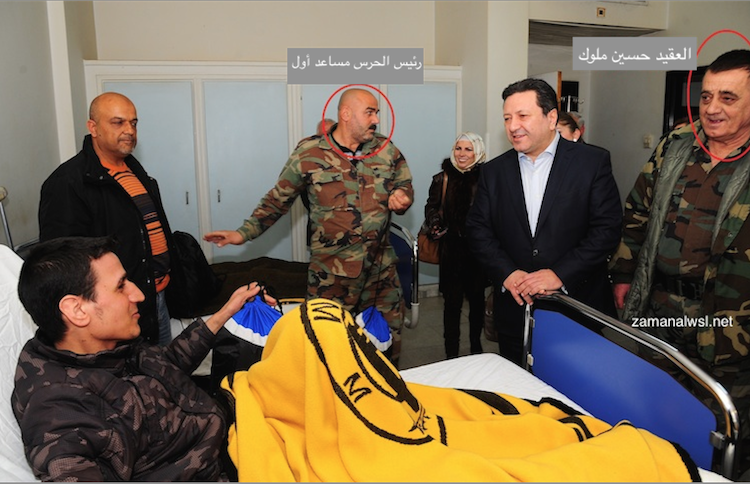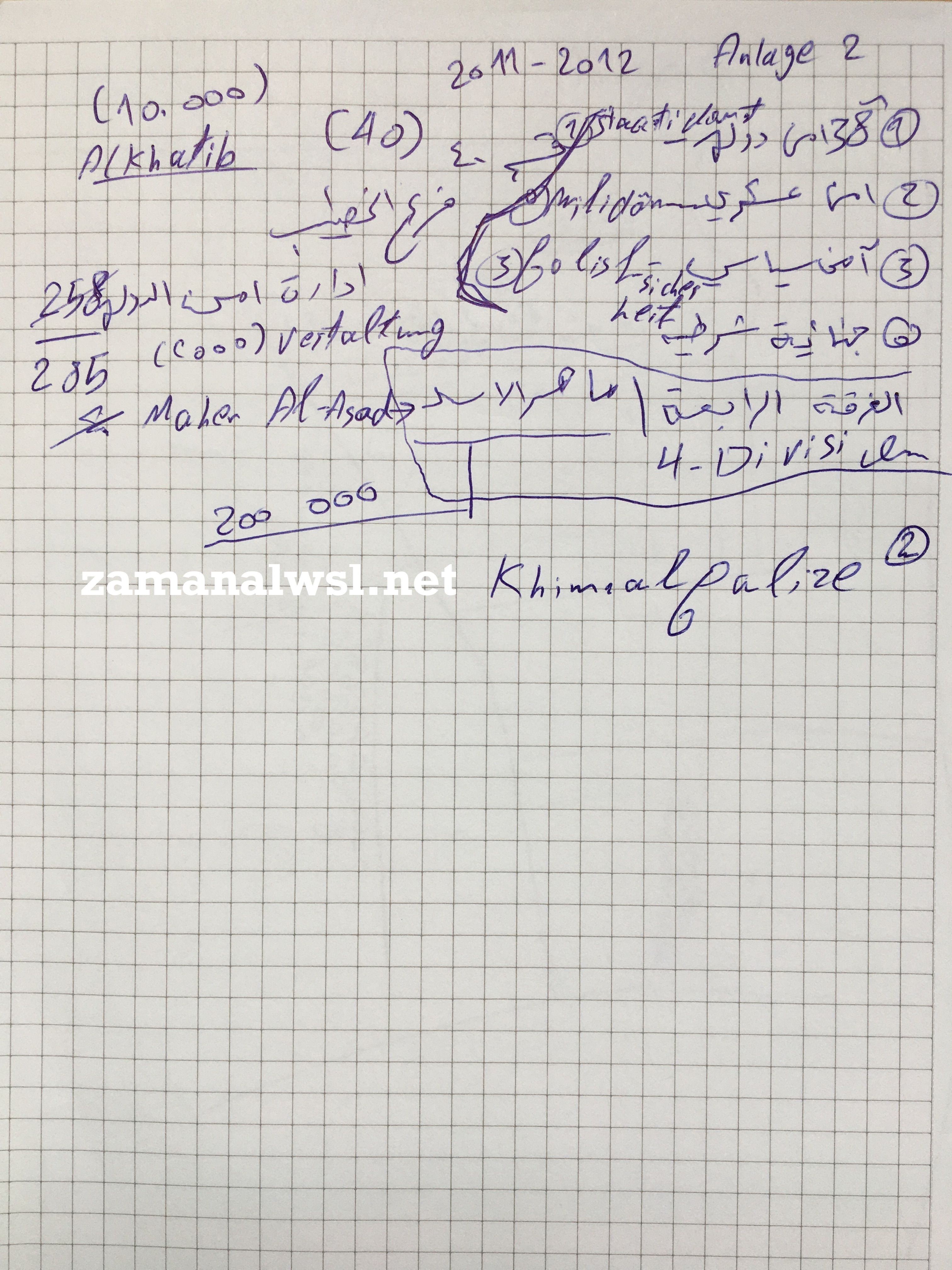By Tareq Khelo
(Zaman Al Wasl) Berlin- In view of the importance of the testimony, the court in Koblenz, Germany, heard the witness, who was called “07/19 / Z- 30” in two lengthy sessions on two consecutive days.
We previously reported the proceedings of the first session held on 9 September, and here we are trying to report the second session that was held on 10 September, during which the witness gave new information, and it ended with a debate between the defense committee of the accused (Anwar Raslan and Iyad Al-Gharib) and the witness’s lawyer.

In the backstage
After the first session, I (I am the author of the report) was another person who left the room. I started searching among the attendees to get a statement or comment that completed the scene, so I was surprised to see "Z-30" standing a few meters away from the main door of the court.
With a louder voice, hoping to cut off his distraction and draw his attention, I thanked him for his testimony in front of the court. Z-30 looked at me and stared into my eyes, and said: “Praise be to Allah, it is my testimony to God. His voice was suggesting someone who wanted to rest his conscience and he got it.”
I asked him if the translation was good and understandable, especially since his speech and response suggested that he did not stay long in school.
Z-30 replied: “I understood everything. They asked me about the numbers. Truthfully, I did not count, but if I said millions, I am not exaggerated.”
Here, lawyer Anwar al-Bunni intervenes, directing his words to me in a somewhat loud voice: "Do not (burden) the man."
I headed to Z-30 and before we left, I gave him my phone number, hoping to receive a call from him that tells the thirst for questions rushing in my mind and the minds of many Syrians who will read the facts of his testimony soon.
Z-30’s attorney came to us and said “please, no pictures, no meeting, please.” I interrupted him, assuring that I was not taking pictures.
The second session began with the presentation of some attachments, represented by "illustrations" that were in the file of the witness's investigation ... drawing papers or the witness's handwriting on them before the German police, in order to explain to them some details.
Given that taking pictures is prohibited in all its forms, Zaman Al Wasl redrawn the papers presented in the courtroom, via a projector, in an attempt to transmit all the details of those papers, including the simulation of the witness’s handwriting, and the police notes on those papers.
The witness confirms that drawing this paper was an attempt to explain to the officers during the investigation the form of the papers that he was writing, and that this paper is only an example that shows how he used to record the branch codes and next to it the numbers of bodies coming from each branch.
He added: “I mean, for example, the number 40 came and the letter D, which means the security of the state of Section 40, and after that the number of dead, and for whoever owned this branch.”
This is when the bodies of the victims came directly from the branches, but when they were received from the military hospitals (Tishreen and Harasta), the bodies were attached to a different number of documents each time.
Because the bodies coming from the military hospitals, according to the witness’s explanation, the bodies are collected from several security branches, and each branch has its own document, commenting: “Sometimes a truck comes to transport the bodies with 3 documents, and sometimes 10 documents, meaning each document from a branch. Approximate Arabic, so you will know who we were taking (the bodies), and the police wrote the English on it.”
Maher Al-Assad’s Group
The judge inquires what he meant by "the criminal", because he mentioned this term to the police at the time of the investigation, while "Anwar Raslan" stared at the witness with great focus, and "Iyad al-Gharib" puts his hands on his head as if he had a headache.
The court moves to satellite images, where the judge displays some "Google Maps" snapshots, but the witness fails to locate the graves on maps.
The defense attorney for the accused manages to ask the witness: Where is Damascus airport located? Then he asks him about the location of the graves again.
The conversation goes back to the work of the witness from the beginning, and how he was carrying out some "work" without any knowledge of the details, and with the passage of time, Assad's intelligence services began to trust him and his team, and began to rely on him to perform the "mission."
During the second session, the witness confirmed that the Fourth Division and the Air Force Intelligence in Mezzeh and Mezzeh Airport have their own collective graves, according to what he heard from the driver of “Al-Bagher” and the driver of “Turks”, who were assigned to dig burial trenches in “Najha” in southern Damascus suburbs and “Al-Qutifah” 30 miles northeast of the capital, where these were The two drivers also perform the same tasks at the fourth and air force graves.
A judge asks about the status of the Mezzeh Military Hospital (601), and the witness replies that it is similar to Tishreen Hospital, but the Mezzeh Hospital is small and does not accommodate large body refrigerators such as Tishreen Hospital, and therefore the bodies are transferred from the Mezzeh Hospital to Tishreen, to be transferred from there to one of the two cemeteries in Najha Or marigold.
Judge: You spoke to the police about a third grave. What is the name of the third grave?
He answers: It belonged to the Fourth Division, affiliated with Maher al-Assad, here they were buried in the heart of the division. And the Air Force Intelligence branch in Mezzeh, were buried in the same branch. "

Questions with Objections
The Public Prosecution representative asks the witness to turn back a little, where “Anwar Raslan” and “Iyad al-Gharib” are seated, and to look at them and make sure that he knows them or has seen them before. The witness looks at Ruslan and al-Gharib and tells the court that he does not know them.
After the witness said everything in this session, the Defendants Defense Authority proceeded to direct its questions to "Z-30", and most of them were questions about the personality of the witness, who had previously been confirmed by the court of the right to hide it (i.e. the character) even from the defense team.
A lawyer from the defense committee asked the witness: What did you do after you left the school? Then the witness’s lawyer objected to the question, saying that it was a question that had nothing to do with the case, but the defense attorney insisted on knowing the answer.
Here the panel of judges intervened, and confirmed its response to the question of the defense attorney for the defendants, who in turn moved to another question, addressing the witness: “Were you a truck driver?” As the case, the witness’s lawyer objected, so the defendants ’lawyer repeated his question, confirming that he did not want a preferred answer, enough yes Or no, the witness replied: Yes.
The defense attorney asks for the defendants: Have you performed military service? Then the witness’s lawyer is exposed again and the judges accept his objection. The defendants ’lawyer tries with another question:“ Were you in the administration in Damascus after I finished the military service? ”.. A question countered by an objection from the witness’s lawyer who confirms:“ I am the witness’s legal assistant and his lawyer. Explain that in detail. "

Judge for the witness: Do you confirm that?
Witness: Yes, yes.
The defense attorney repeated the same question to the witness: Were you an employee in the administration ?, the witness’s lawyer returned the objection.
The defense attorney for the witness: You said that the brigadier general ... (the name was withheld by Zaman Al Wasl) gave you the assignment? And at this question, it was very strange for the defense attorney to reveal the name of a dean who worked with the witness, despite the witness’s lawyer repeatedly warning about any information It may lead to the disclosure of the identity of his client.
The representative of the Public Prosecution office responds to the defense attorney: "You ask for details. We do not know what you want to reach through them."
Witness defense attorney: Were you the one who wrote the lists personally?
He replies, "Yes, I am with a security officer."
Defense attorney: Where did you take these lists?
He replied: "In the office."
Witness defense attorney: How did you know what you were recording? How do you know that the bearer of this or that name is a dead person?
Judge for defense counsel: I think your question has nothing to do with what the witness said.
Defense attorney for the judge: I authorize you to raise the question.
Judge: The witness said he was receiving the lists with the trucks.
Here, the defense attorneys enter into moments of consultation with each other, to declare that they are sufficient to ask questions, and to inform the judge, the witness "Z-30", that he can now leave.
The second hearing ends at around 12:05 pm, and the witness quickly leaves the courtroom, as if he is racing against time.

















Comments About This Article
Please fill the fields below.